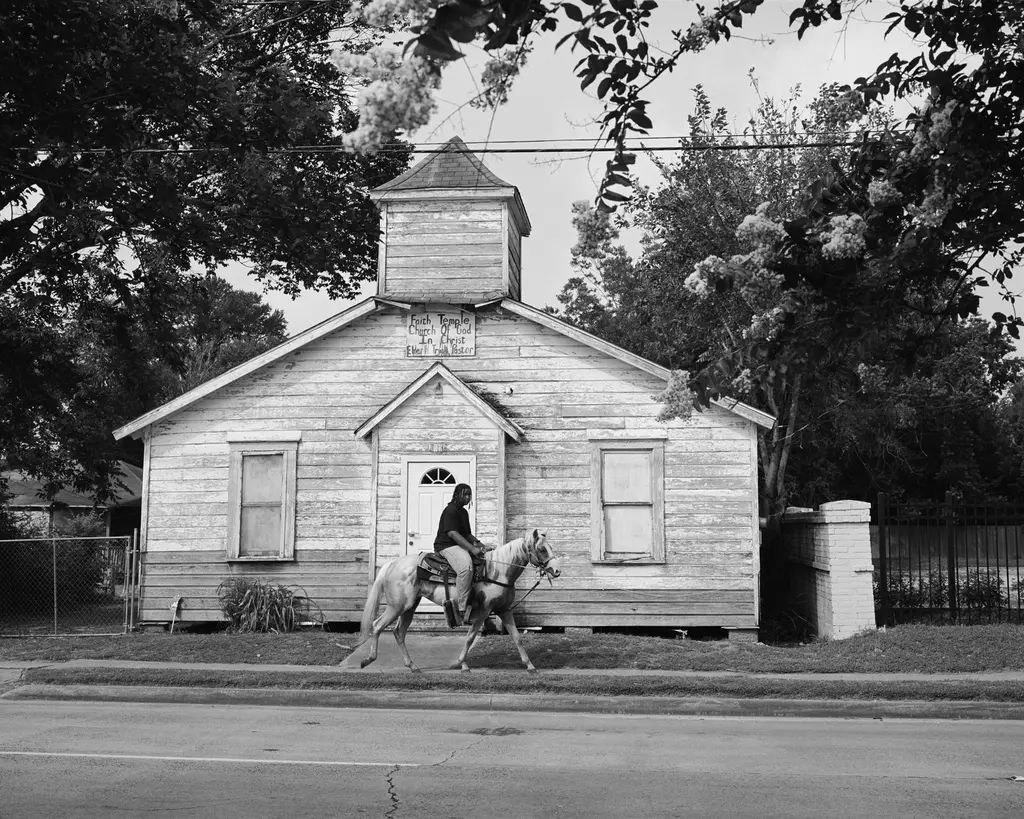What it’s like to live as a black person in Japan
- Text by HUCK HQ
There are many stereotypes that surround the western experience in Japan. Typically, they tend to be visualised by tall white men looming over crowds and looking lost on overpacked metro carriages. What’s very rarely discussed, though, is the black foreign experience. What’s it like to be a person of colour in a homogenised capital like Tokyo?
In a new short documentary from Nigerian-American artist Amarachi Nwosu, we get a look into the everyday lives of these expats. The 10-minute film – simply titled Black In Tokyo – follows five subjects as they negotiate the cultural challenges of the Japanese capital, while also trying to balance their personal customs with local traditions.
“I moved to Tokyo in 2015 at the age of 20,” Nwosu tells Huck. “I was able to adapt and manoeuvre the space as I would any city. By being open-minded it really allowed me to open a lot of doors and taught me a lot about myself and my identity.”


The film looks in detail at what it’s like to escape your comfort zone, and shines a light on the open nature of the Japanese capital. For example, despite being one of the only black people in her circle of friends, Nwosu notes that she was always “treated very well,” and that racial hostility in Tokyo was very rare.
“Hostility in Japan is usually very passive, so even when people feel a certain way about you, it usually comes out in body language and facial expressions rather than words or actions,” she recalls. “This mainly came from people in the older generation, but amongst younger people, I rarely got that kind of energy.”
“I think that shows you the generational gap and the influence of black culture in contemporary culture versus how it was in the past. The more people are exposed to black media, the less they feel discomfort from seeing someone of a different background.”


The release of Black In Tokyo coincides with the launch of Nwosu’s new visual platform, Melanin Unscripted. The project aims to dismantle stereotypes and blur racial lines by exposing “complex identities and cultures instead of the one-dimensional narratives often reproduced in mainstream media.”
“I hope that people feel inspired to explore themselves and explore the world around them. Being outside of your comfort zone can be difficult but it can also be so rewarding. If you don’t take risk, you don’t grow. So whether you’re black, white or brown, you can go to any city you want and still be the best version of yourself. When your are not physically at home, make a home out of yourself.”
The release of Black in Tokyo will launch under Amarachi Nwosu’s visual platform Melanin Unscripted, which is aimed to dismantle stereotypes and blur the racial lines by exposing complex identities and cultures instead of the one-dimensional narratives often reproduced in mainstream media. The idea is to inspire people to pursue their passions regardless of what background they come from by sharing unique stories of individuals, who are pushing the culture and paving the way for the next generation of young people.
Watch the Black In Tokyo in full above, and learn more about Melanin Unscripted on the platform’s official website.
You might like

Yaya Bey: “Capitalism is exploitation, period”
do it afraid — Ahead of the release of her second 18-track odyssey in just over a single year, we caught up with the prolific singer, discussing the pitfalls of the music industry, European ‘voyeurism’ framing her previous album and breaking narratives set upon her by others.
Written by: Isaac Muk

On Alexander Skarsgård’s trousers, The Rehearsal, and the importance of weirdos
Freaks and Finances — In the May edition of our monthly culture newsletter, columnist Emma Garland reflects on the Swedish actor’s Cannes look, Nathan Fielder’s wild ambition, and Jafaican.
Written by: Emma Garland

Tony Njoku: ‘I wanted to see Black artists living my dream’
What Made Me — In this series, we ask artists and rebels about the forces and experiences that shaped who they are. Today, it’s avant-garde electronic and classical music hybridist Tony Njoku.
Written by: Tony Njoku

New documentary revisits the radical history of UK free rave culture
Free Party: A Folk History — Directed by Aaron Trinder, it features first-hand stories from key crews including DiY, Spiral Tribe, Bedlam and Circus Warp, with public streaming available from May 30.
Written by: Isaac Muk

Rahim Fortune’s dreamlike vision of the Black American South
Reflections — In the Texas native’s debut solo show, he weaves familial history and documentary photography to challenge the region’s visual tropes.
Written by: Miss Rosen

Remembering Holly Woodlawn, Andy Warhol muse and trans trailblazer
Love You Madly — A new book explores the actress’s rollercoaster life and story, who helped inspire Lou Reed’s ‘Walk on the Wild Side’.
Written by: Miss Rosen

